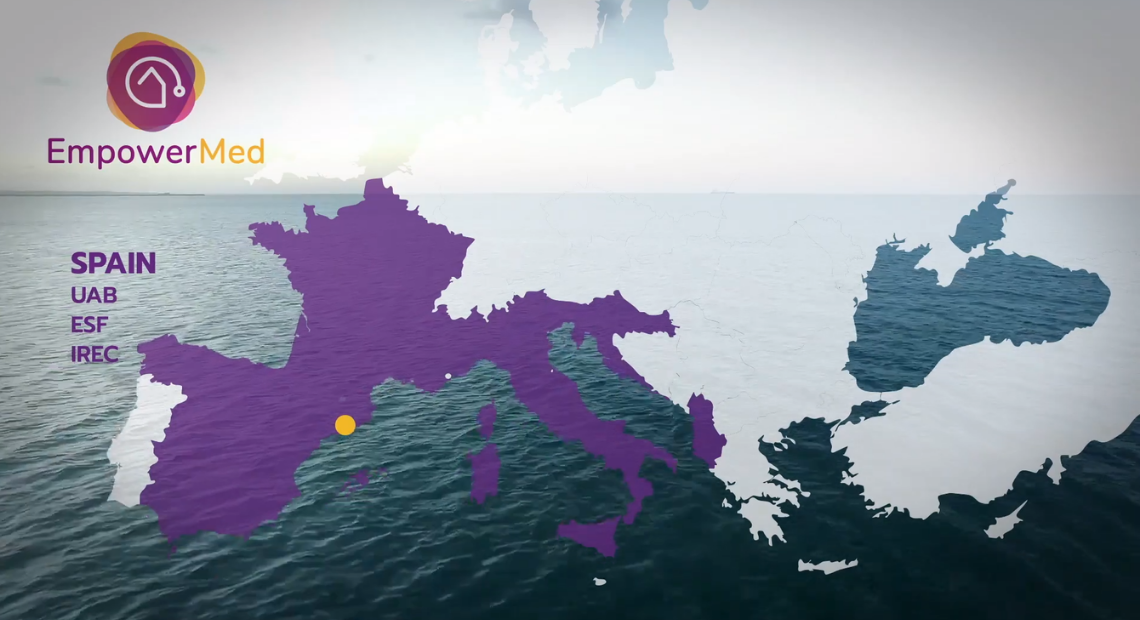Every year, millions of people in Europe cannot keep their homes warm in winter and comfortable during the summer due to existing socio-economic barriers to access basic energy services. The Mediterranean region is not indifferent to this challenge, which is why IREC has partnered with eight regional stakeholders to mitigate the problem by mobilizing action in six pilots, including Barcelona, as part of the European project EmpowerMed.
IREC collaborates with the Alliance against Energy Poverty (Alliança contra la Pobresa Energètica) to monitor thermal comfort and electricity consumption in affected households. The objective is to empower volunteers with accessible information to reduce costs and improve their indoor conditions with low-hanging fruit strategies that require small efforts and little or no costs at all.
Volunteers participating in this initiative, leaded by the Energy Systems Analytics and the Thermal Energy and Building Performance research groups of IREC, are given two thermal sensors to monitor their home conditions for two weeks. The equipment is already set to avoid placing extra burdens on volunteers; the only requirement is to put the sensor in a spot away from external heat sources. Once the sensors are returned, IREC analyzes the data to provide a user-friendly report with personalized strategies to improve indoor conditions. For example, suggesting different times to practice natural ventilation.
To analyze the household’s electricity consumption, IREC makes use of the smart-meters already installed by the distributor to invoice end users. To access their information, the contract holder must register in the distributor’s website using their CUPS number and a copy of their DNI or NIE. IREC assists volunteers in this process and, once registered, helps them download their hourly electricity consumption data and register the peak power demanded in than period. To process this information, IREC uses an in-house tool that returns the lowest-cost tariff for their energy profile, checks if the contracted power suits their needs and shows volunteers how their daily consumption fits against prices slots in summer and winter.
The project started collecting data in September 2020 and more than 15 households have been evaluated since then. The thermal monitoring in the past months have included periods with extreme low temperatures paired with rising electricity costs, for instance, during the storm Filomena. In this way, the Empowermed project allows not only to provide recommendations to household dealing with energy poverty, but also understanding their energy consumption patterns and their indoor comfort conditions beyond the myths that tend to be constructed around this social group.
The overall objective of EmpowerMed is to tackle energy poverty in the coastal areas of Mediterranean countries, with a particular focus on women, gender and health. To learn more about Empowermed project, please visit the Empowermed’s website: https://www.empowermed.eu/
This project receives funding from the European Union’s Horizon 2020 research and innovation programme under grant agreement number 847052.




